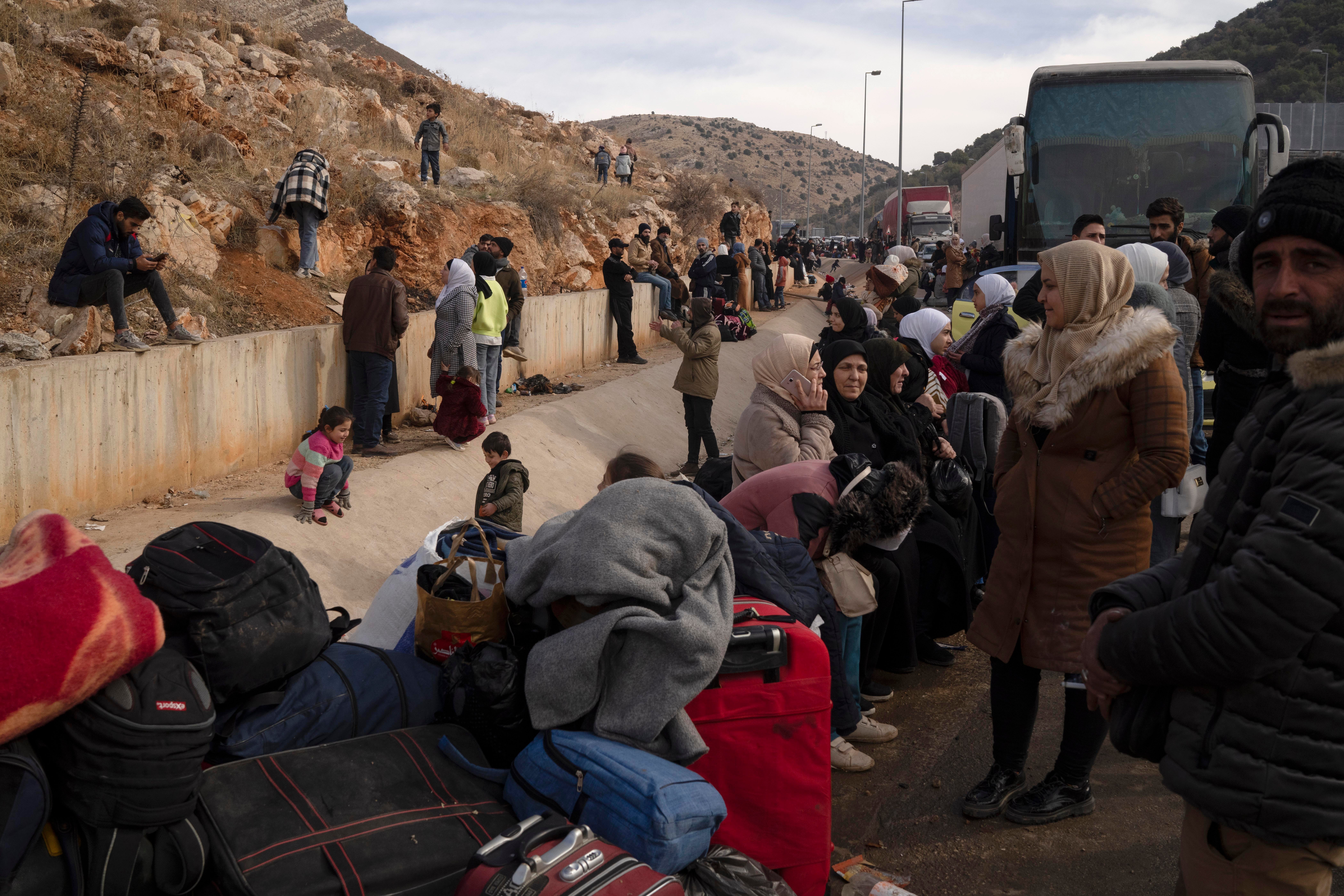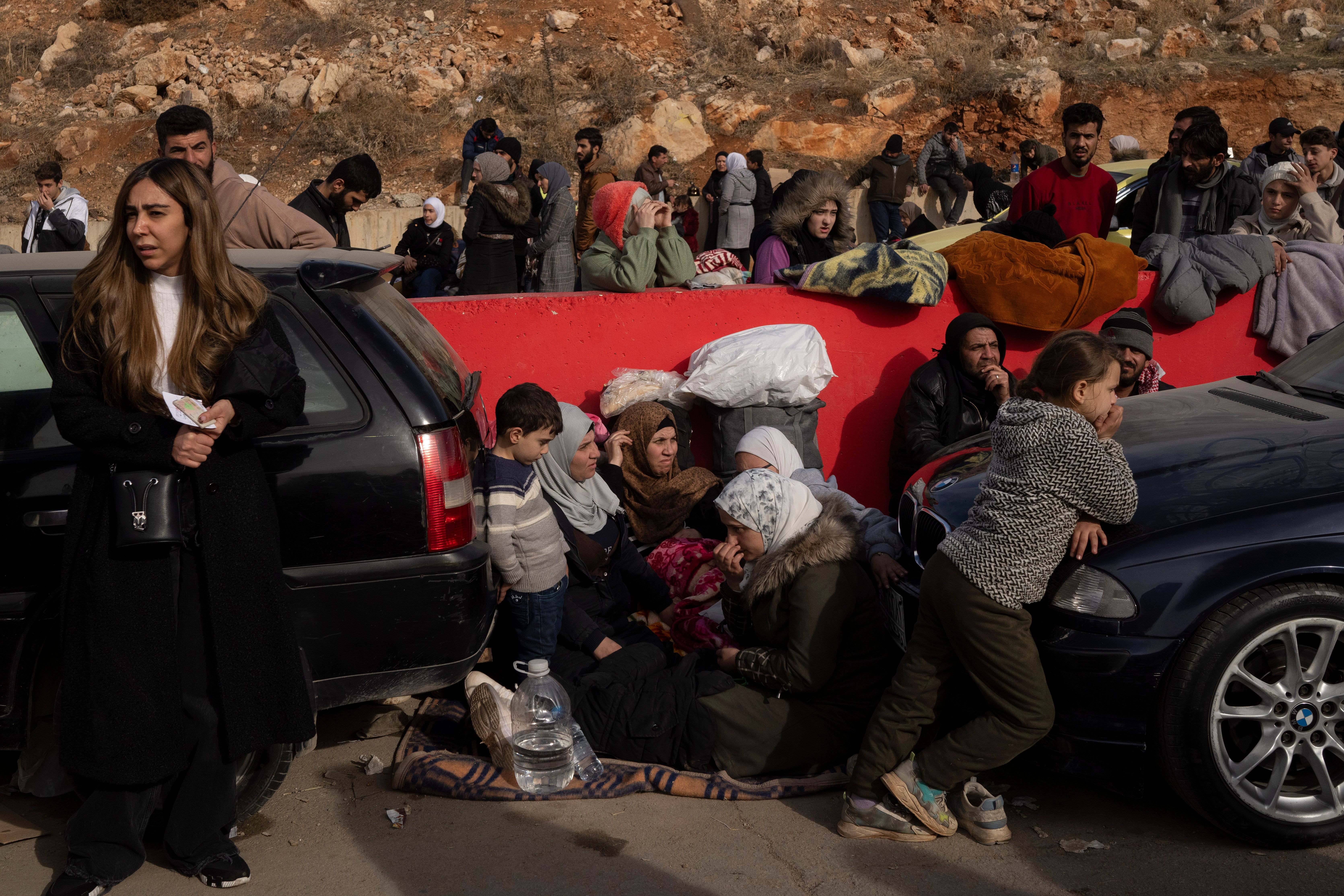Thousands queue to flee Syria as ethnic minorities fear post-Assad future
Many from ethnic minorities are fleeing Syria after Bashar al-Assad’s brutal regime was deposed on the weeekend

Thousands of Syrians are stranded on the Masnaa border crossing with Lebanon, looking to flee the country in fear for their futures after Islamist rebel groups ousted Bashar al-Assad’s brutal regime.
Minority groups in Syria, including Christians and Alawites, are among those concerned that the new Syria’s future may not be tolerant of their communities, many of whom opposed the revolution in 2011 and the subsequent 13-year civil war.
The Masnaa border point - the only operational crossing between Syria and Lebanon - has been inundated with huge queues of Syrians attempting to travel in both directions, with many hoping to return to a freed homeland after years of displacement in Lebanon.
Reports have emerged that a United Nations High Commissioner for Refugees (UNHCR) is considering setting up a camp along the Lebanon-Syria border for the displaced Syrians stranding as they attempt to cross. The Independent has contacted a UNHCR spokesperson for more information.

In a UNHCR update, the organisation said it is “aware of thousands of Syrians fleeing Syria into Lebanon” and that “hundreds of thousands” of Syrians are “fleeing for their lives inside the country”.
A security source told Al-Araby Al-Jadeed that the influx of people attempting to leave Syria includes Iranians and Iraqis - but that most come from Syrian minority groups. It comes despite promises made by Hayat Tahrir al-Sham (HTS) - the rebel group which ousted Assad - that all citizens of Syria, including its minorities, will live in safety.
But for the minorities who have spent years living in fear of both Assad and the rebel alternatives, an impending period of significant uncertainty and chaos has left little option but to flee.
The Alawite community - from which the Assad family originates - are the largest Muslim minority group in Syria, making up roughly 10 per cent of the population and situated largely in Syria’s coastal provinces. The Assad family has long relied on the Alawites, who have filled many senior positions in the regime, since they came to power in 1970.

Many reports suggested that they were disproportionately targeted for conscription by the Assad regime in earlier years of the war, with conflicting estimates all agreeing that at least tens of thousands of Alawites have been killed in the conflict.
While taking up a disproportionate number of positions in key regime positions, Alawite communities are also some of the poorest in Syria. One Alawi dentist told The Times that it was comparable to an “army of slaves”, with many living in the belief that “if we leave him [Assad], we will die”.
Christians in Syria, one of the oldest communities of Christians in the world and concentrated in similar areas to the Alawites, are also living in fear of an “uncertain and perilous future”, according to the president of human rights group International Christian Concern, Jeff King.

“The coming days and weeks will be crucial for the fate of [the] Christian community,” Mr King added to the Christian Post. “Christians, with roots stretching back nearly two millennia, now face an uncertain and perilous future.”
HTS has tried to make the right noises, with its control of Syria not yet consolidated. It has prevented damage to Christmas decorations and other religious buildings and monuments, with one Christian telling AFP news agency that the behaviour of the rebels had been “completely different from what we expected”.
The international community, including the US, has called on the new Syrian leaders to respect the rights of ethnic minorities, but their long-term approach towards minority groups remains to be seen.
Join our commenting forum
Join thought-provoking conversations, follow other Independent readers and see their replies
Comments
Bookmark popover
Removed from bookmarks